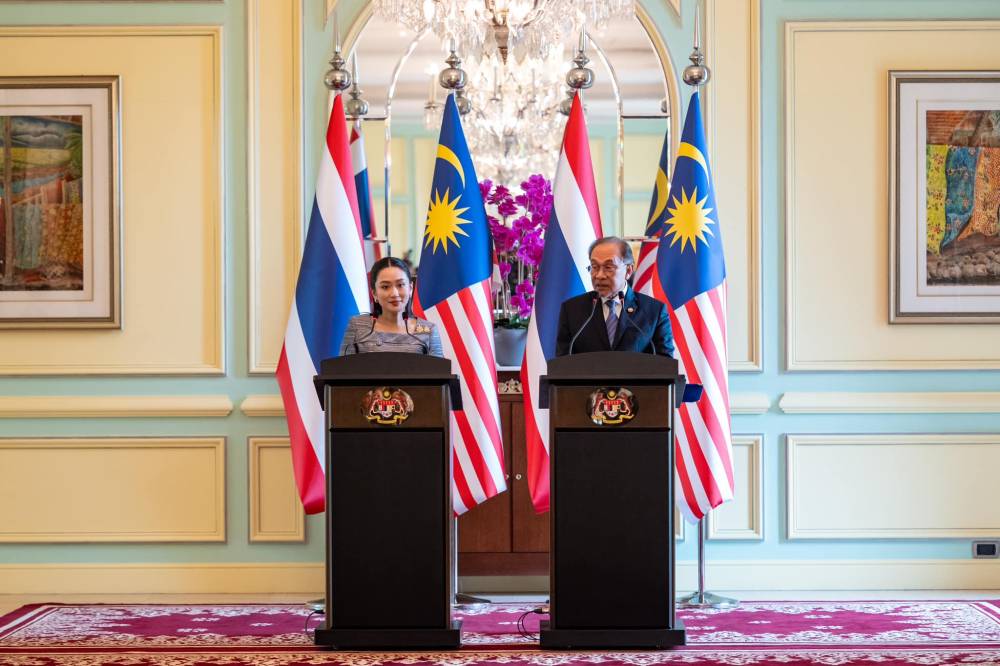Anwar's 2025 Asean adviser appointment: Who is Thaksin Shinawatra?
The appointment, proposed by Malaysia and agreed upon by Thailand, highlights the perceived need for experienced figures to support Malaysia’s role.

SHAH ALAM – Prime Minister Datuk Seri Anwar Ibrahim has appointed former Thai Prime Minister Thaksin Shinawatra as an informal adviser for Malaysia’s upcoming chairmanship of the Association of Southeast Asian Nations (Asean), which begins on Jan 1, 2025.
Anwar announced the appointment during a joint press conference on Dec 16 in Putrajaya alongside current Thai Prime Minister Paetongtarn Shinawatra, who was on an official visit to Malaysia.
“I have agreed to appoint (Thaksin) as my personal adviser as chairman of Asean,” Anwar said, expressing confidence that Thaksin’s experience as a statesman will provide valuable insights to Malaysia’s Asean leadership.

The appointment, proposed by Malaysia and agreed upon by Thailand, highlights the perceived need for experienced figures to support Malaysia’s role.
However, the decision has drawn criticism from various political figures.
Pas Information Chief Ahmad Fadhli Shaari voiced concerns, arguing that such advisory roles were traditionally held by diplomatic experts or former foreign ministers.
Critics have also pointed to Thaksin’s controversial past, questioning the implications of his involvement in Malaysia’s affairs.
Who is Thaksin Shinawatra?
Thaksin, born on July 26, 1949, is a prominent Thai politician and businessman. He served as Thailand’s Prime Minister from 2001 until his ousting in a military coup in 2006.
As the founder of the Thai Rak Thai Party, Thaksin introduced popular policies that significantly improved healthcare and reduced poverty during his tenure.
However, his administration was also marred by allegations of corruption and human rights abuses, particularly during his controversial ‘war on drugs’ campaign, which led to thousands of extrajudicial killings.
With a net worth of USD$2.1 billion as of 2024, Thaksin has extensive business interests, including a telecommunications empire and former ownership of Manchester City Football Club.
After 15 years of self-imposed exile, Thaksin returned to Thailand in August 2023. He was sentenced to eight years in prison on charges of graft and abuse of power.
However, his sentence was later reduced to one year by Thai King Maha Vajiralongkorn, and he was released on parole after serving just six months.
Thaksin’s political legacy is further complicated by the fact that his sister, Yingluck Shinawatra, also served as Prime Minister of Thailand from 2011 to 2014 before being ousted by another military coup.
Yingluck’s administration faced mass protests in 2013 amid allegations of corruption and nepotism.
In 2014, she was removed from office by the Constitutional Court for abuse of power. After fleeing Thailand in 2017, Yingluck was sentenced to five years in prison over a controversial rice subsidy scheme.
As Malaysia prepares to lead Asean in 2025, Thaksin’s appointment as an informal adviser has sparked debate over the role of controversial figures in shaping regional diplomacy.
While supporters view his experience as an asset, critics remain sceptical about the political and diplomatic implications of his involvement in Malaysian affairs.















